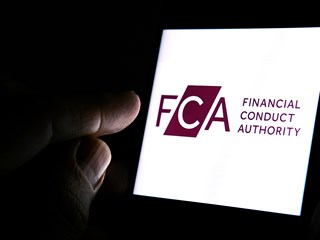
Established in April 2013, the Financial Conduct Authority (FCA) is an independent public body that regulates the actions of businesses and individuals in the UK’s financial services industry. It offers protection to customers in the UK by ensuring products and services provide a fair deal while remaining competitive.
The FCA sets standards for businesses that allows them to carry out regulated financial activities.
Examples of regulated financial activities include:
Any business that fails to meet its standards could be investigated by the FCA and potentially penalised. This can include being fined, prosecuted, banned from conducting regulated activities and/or having to pay compensation.
Should a regulated firm or individual go bust and be unable to pay compensation, the Financial Services Compensation Scheme (FSCS) may step in to protect consumers, up to certain limits. While this scheme was set up by the Government, it’s still overseen by the FCA.
You can find out more about the FSCS here: FSCS explained: Are my UK savings safe?
The FCA works to safeguard consumers from harm caused by misconduct or bad practices. This can include:
Consumer Duty was introduced by the FCA on 31 July 2023 to cover all open financial products and services. As of 31 July 2024, the Duty was extended to additionally cover closed products which are no longer available to new customers but may still be held by some consumers.
The purpose of the Duty is to further protect consumers by asking firms to evaluate whether their products offer a fair deal.
This includes providing accessible customer support and presenting financial information that is clear and easy to understand, as well as whether the product or service itself provides good value. Businesses also need to consider how they engage with consumers who may be vulnerable or struggling financially.
As part of the Duty, firms or individuals must act if data suggests customers are suffering poor outcomes from a particular product or service.
The majority of financial businesses in the UK are regulated by the FCA, including:
After successfully registering with the FCA, a business must follow the authority’s regulations outlined in the FCA handbook. These firms are closely monitored to ensure standards are being upheld.
All firms that are regulated by the FCA are listed on the Financial Services Register. This public record allows consumers to search for a firm or individual’s contact information, and what activities they’re permitted to carry out.
You can also use the register to view details about clone firms. These are unauthorised businesses that falsely claim to be a regulated firm. What’s more, the FCA’s ScamSmart campaign helps alert people to potential scams – both from clone firms and organisations pretending to be part of the FCA itself.
In certain circumstances, firms can carry out regulated activities without needing FCA authorisation.
Solicitors and accountants, for instance, may not require authorisation from the FCA, as well as public authorities such as county and district councils. However, keep in mind other regulations apply.
Businesses offering payment by instalments can also sometimes be exempt, although this relies on a credit agreement for a specific service and the amount being repayable in no more than 12 instalments. Furthermore, it must not be a conditional sale, to buy land or contain additional charges or interest.
As a consumer, you may come across certain financial products and services that are not regulated by the FCA. This doesn’t necessarily mean businesses providing these services are illegitimate; it may simply mean the service itself falls outside of the FCA’s remit and, as a result, companies are not required to be authorised in this circumstance.
In some cases, a company can undertake both regulated and unregulated activities, meaning there are times when you could use an unregulated financial service from an authorised firm. It’s therefore important to understand what kinds of services are classed as unregulated by the FCA.
Examples of unregulated financial activities may include:
It’s important to note the FCA does not investigate complaints made about the firms under its supervision. If you’re unhappy with the services being provided to you as a consumer, you’ll need to make a complaint to the firm directly.
If you’re not satisfied with the firm’s decision, you can also contact the Financial Ombudsman Service. It’s a free, independent service that works to resolve complaints between financial services firms and consumers. However, you must contact the Ombudsman within six months of receiving a final response from the firm.
That being said, the FCA will deal with complaints about itself (and other regulators such as the Prudential Regulation Authority (PRA) or the Bank of England), but it won’t consider complaints about its rules or guidance.
Disclaimer: This information is intended solely to provide guidance and is not financial advice. Moneyfacts will not be liable for any loss arising from your use or reliance on this information. If you are in any doubt, Moneyfacts recommends you obtain independent financial advice.